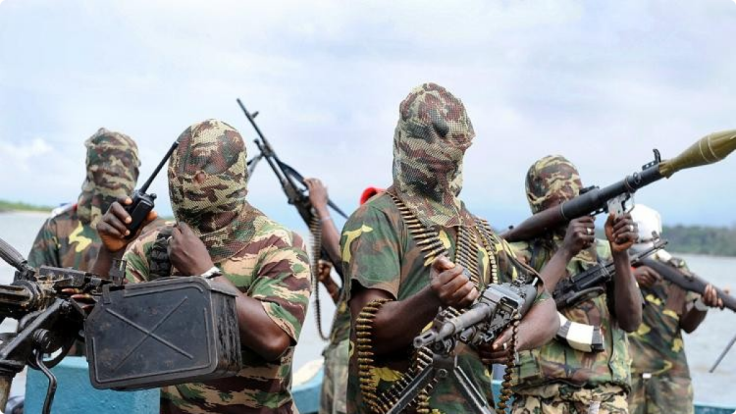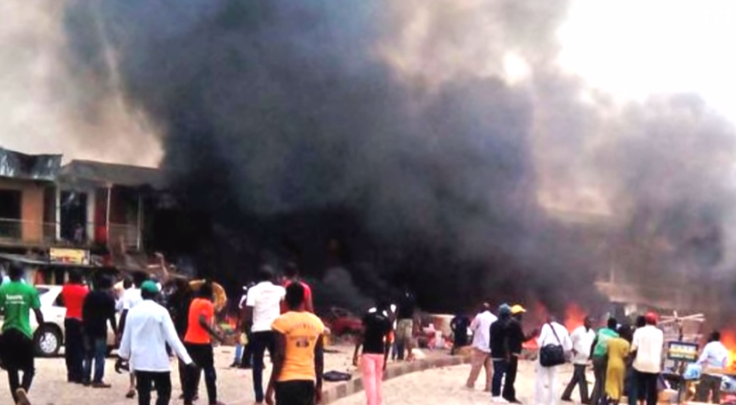Jihadist-controlled territory: How do Boko Haram, Isis and the Afghan Taliban compare?

The rapid expansion of territory seized by jihadist groups is one of the worst geo-political developments in recent years.
Boko Haram in Nigeria, the Islamic State (Isis) in Syria and Iraq and the Afghan Taliban have all violently brought land under their control.
Though not the only Islamic extremists to control territory in the world – others include al-Shabab in Somalia and al-Qaeda in Yemen – these three groups have either established, or have realistic aspirations of establishing, a functioning state to consolidate their power and permanence.
Islamic State
Islamic State burst out of the Syrian civil war in late 2013, where its jihadists had been fighting the government, and took most by complete surprise.
After seizing control of some Syrian areas from forces loyal to Bashar al-Assad – including the city of Raqqa, now the capital of the Islamic State – it went on to win territory in Iraq too.
And it bolstered its military capabilities by taking US-made weapons from the fleeing Iraqi Army, including pieces of heavy artillery. It captured Mosul, Iraq's second city, as radical Islamists from across the world, including Western countries, travelled to fight under the banner of the Islamic State.

After its rapid land-grab, the self-declared Islamic State – a brutal caliphate headed up by Abu Bakr al-Baghdadi which adheres to an ultra-strict form of Sharia law – set about not only defending it, but maintaining institutions such as a justice system and creating an economy.
It has primarily funded itself through donations from wealthy sympathisers in the Middle East and selling oil produced within its borders at infrastructure it stole from Syria and Iraq, but also raises money from assets it has robbed, extortion and kidnap ransoms.
Islamic State militants have captured journalists, aid workers and foreign fighters, often demanding ransoms for their safe return. Many have been executed, sometimes by beheading.
The exact square mileage under the Islamic State's control is not known. Estimates vary from 12,000 (about the size of Belgium) to as much as 81,000 (about the size of Belarus). As it wins and loses territory in battles with Iraqi and Syrian forces, the figure is constantly changing.
There are thought to be eight million people living under the oppression of the Islamic State.
Its central goal is to create a global caliphate. While this is obviously never going to happen, it may – if it can maintain a supply of weapons, money and fighters – take more ground in the Middle East and consolidate the state further, unless a serious military challenge is made.
Boko Haram
Boko Haram, an armed radical Islamist group whose name translates as "Western education is forbidden", is murdering and pillaging its way across Nigeria. Its reach also touches border countries, such as Cameroon, Niger and Chad.
In the latest deadly assault, over 2,000 innocent Nigerians were slaughtered – including pregnant women and children – as Boko Haram razed entire towns to the ground.
The group, thought to be led by Abubakar Shekau, is also known for kidnapping schoolgirls and forcing them into marriage with their fighters, as well as using child soldiers.
One of the most sickening atrocities carried out by Boko Haram is strapping bombs to a 10-year-old girl and sending her into a crowded marketplace before murdering her and 16 others by detonating her.
Founded in 2002, it is only in recent years that Boko Haram has managed to gain ground. As a result, it has become a proscribed terror group in the UK and US.

According to a June 2014 briefing by the Henry Jackson Society, Boko Haram has as many as 300 training camps in Nigeria and neighbouring countries.
It pays its soldiers for joining and then fighting, with bonus payments for acquiring weapons during battle.
Thirteen years on from its inception, it has taken control of around 20,000 square miles of territory and displaced around 300,000 people in the process.
That is bigger than Slovakia, to put it into perspective, and home to more than 1.7 million people now living under the tyranny of Boko Haram, which adopts an extreme Sunni interpretation of Islam.
And it makes its money through illicit means. It robs the places it raids; uses the black market to sell drugs and poaching spoils; extorts people and kidnaps for ransom; and receives donations from al-Qaeda and supportive Islamists (including $3m from Osama bin Laden himself in the early 2000s).
It's not known exactly how many people are fighting with Boko Haram. The US State Department said estimates vary from a few hundred to a few thousand.
The Nigerian army cannot contain Boko Haram. As the extremists gain ground, the concern is that they will pause to formalise themselves – it is currently a loose band with no clear hierarchy – and start developing a semi-functioning state with institutions. Some are already calling it the "Islamic State of Africa".
Afghan Taliban
Despite losing most of its territory when it was unseated from rule by the US-led invasion of Afghanistan in 2001, the Afghan Taliban has maintained a fierce guerrilla opposition.
Now full military operations by the US and UK have officially ended in Afghanistan, though a few thousand troops remain to support the Afghan army, it's feared the Taliban will simply reclaim control through the use of force much of its former territory.
Islamic fundamentalists, the Taliban regime in Afghanistan was attacked by the US in the aftermath of 9/11 because it harboured al-Qaeda's terror training camps inside the country and had close links with the organisation, headed by Osama bin Laden who masterminded the 2001 attack on America.
Despite ousting the Taliban, coalition forces far from defeated them. The Taliban still controls some Afghan territory and continues to fight.

It has some support from Afghan villagers, who have suffered under the US occupation and are religiously conservative, but it also silences any dissent through intimidation and violence.
It's not known exactly how much of Afghanistan is under Taliban influence in square mile terms. But there are troubling reports of battles that have seen it recapture certain towns and villages in rural areas.
Money and arms are thought to still be flowing in from wealthy sympathisers, probably in Gulf states, while the Taliban also makes cash from drugs by taking control of poppy fields.
And there are doubts about the effectiveness of the Nato-trained Afghan national security forces, who face a lonely battle to maintain stability in the country by fighting back the Taliban.
"In some outlying districts, Afghan forces and local insurgents have reached informal ceasefires that effectively cede a degree of authority to the Taliban," according to a worrying briefing by the Council on Foreign Relations.
Though the UN estimates that the Taliban officially controls just four districts of 373 in Afghanistan, it sits on the edge of others and is ready to pounce: 40% of districts have a "raised" or "high" threat level of Taliban attack.
So while the Taliban hasn't been able to re-establish its control of the whole state, it effectively maintains a sporadic governance of some local areas across Afghanistan.
With the might of the US and UK militaries now largely gone from Afghanistan, the extremists could eventually reassert themselves in Kabul unless a conclusive endgame is reached before this scenario: either by wiping out the Taliban militarily or reaching a political settlement.
Even the Pentagon expects the Taliban to expand between 2015 and 2018 as it tries to take back control of the country.
© Copyright IBTimes 2024. All rights reserved.






